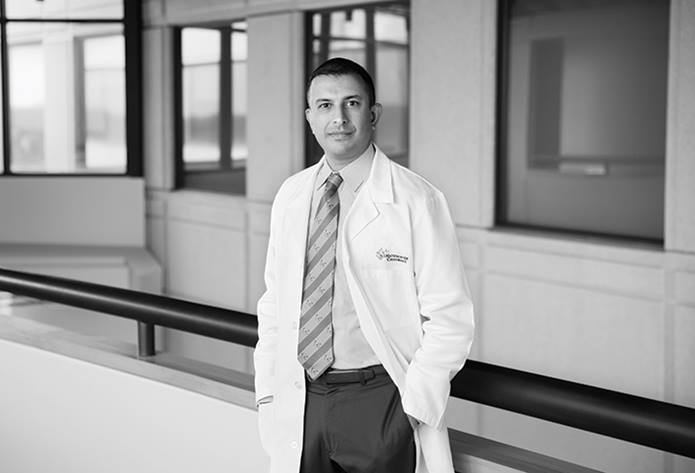Long-Term Follow-up Study Shows Cannabidiol is Safe and Effective for Lennox-Gastaut Syndrome
Long-Term Follow-up Study Shows Cannabidiol is Safe and Effective for Lennox-Gastaut Syndrome https://pediatricsnationwide.org/wp-content/uploads/2018/05/Anup-Patel-Environmental.jpg 695 473 Mary Bates, PhD Mary Bates, PhD https://secure.gravatar.com/avatar/c6233ca2b7754ab7c4c820e14eb518c8?s=96&d=mm&r=g- September 30, 2021
- Mary Bates, PhD

Long-term treatment with highly purified plant-based CBD shows continued seizure reduction and no new side effects.
The results of a long-term open-label extension trial of plant-derived, highly purified cannabidiol (CBD) show the treatment is effective and safe long term for patients with Lennox-Gastaut syndrome. The treatment had a similar safety profile as in the original randomized controlled trials and resulted in a similar drop in seizure frequency for up to 156 weeks.
Lennox-Gastaut syndrome (LGS) is an epileptic encephalopathy that is often treatment resistant. It is characterized by multiple seizure types, developmental delay or intellectual disability, and abnormal electroencephalographic patterns, with onset typically before age 7 years.
Based on evidence from animal studies and case reports, researchers at Nationwide Children’s and other institutions began investigating highly purified cannabidiol (CBD) for the treatment of seizures. In two randomized, double-blind, placebo-controlled trials, CBD significantly reduced seizure frequency and had an acceptable safety profile in LGS patients.
In 2018, this highly purified plant-based CBD was approved by the Food and Drug Administration for the treatment of certain seizure disorders (including LGS), becoming the first plant-based marijuana derivative ever approved for human disease in the United States.
However, the potential long-term benefits or harms of CBD were unknown. To answer these questions, researchers from Nationwide Children’s and elsewhere invited patients who completed the original randomized, controlled trials to participate in a long-term open-label extension trial of the treatment. A total of 366 patients with LGS were enrolled in this trial across 53 sites in the United States and Europe.
“We were pleased to see the results indicated continued treatment success and no new side effects,” says Anup Patel, MD, a pediatric neurologist at Nationwide Children’s and the study’s lead author.
Results demonstrated that long-term CBD treatment had a similar safety profile to that observed in the original randomized controlled trials, with the most common adverse effects being convulsion, diarrhea, fever, fatigue and vomiting.
CBD treatment also resulted in sustained reductions in total seizures up to 156 weeks, with 87% or more of patients/caregivers reporting an improvement in overall condition.
Dr. Patel, who is also an associate professor of Clinical Pediatrics and Neurology at The Ohio State University College of Medicine, says the results are reassuring and encouraging. He is curious to see what other ongoing trials will reveal about the benefits of a prescription based CBD in additional populations of epilepsy patients as well as other diseases, such as autism or anxiety.
“LGS is the first disease state to have such long-term data as it relates to a plant-based derivative of marijuana,” says Dr. Patel. “It is rewarding to see this purified, plant-based form of CBD showing evidence of its safety and efficacy in epilepsy; I think it is also worth investigating if this treatment can be beneficial for other kinds of patients.”
Reference:
Patel AD, Mazurkiewicz-Bełdzińska M, Chin RF, Gil-Nagel A, Gunning B, Halford JJ, Mitchell W, Scott Perry M, Thiele EA, Weinstock A, Dunayevich E, Checketts D, Devinsky O. Long-term safety and efficacy of add-on cannabidiol in patients with Lennox-Gastaut syndrome: Results of a long-term open-label extension trial. Epilepsia. 2021 Sep;62(9):2228-2239. doi: 10.1111/epi.17000.
Image credit: Adobe Stock
About the author
Mary a freelance science writer and blogger based in Boston. Her favorite topics include biology, psychology, neuroscience, ecology, and animal behavior. She has a BA in Biology-Psychology with a minor in English from Skidmore College in Saratoga Springs, NY, and a PhD from Brown University, where she researched bat echolocation and bullfrog chorusing.
-
Mary Bates, PhDhttps://pediatricsnationwide.org/author/mary-bates-phd/December 27, 2016
-
Mary Bates, PhDhttps://pediatricsnationwide.org/author/mary-bates-phd/
-
Mary Bates, PhDhttps://pediatricsnationwide.org/author/mary-bates-phd/
-
Mary Bates, PhDhttps://pediatricsnationwide.org/author/mary-bates-phd/
- Posted In:
- Clinical Updates
- In Brief
- Research






